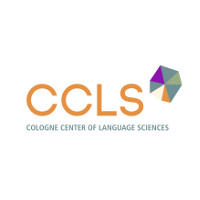Profile Module English Linguistics
The Profile Module English Linguistics is one of the five options within Specialization Module 1 which serves to develop a student’s own profile from among current specialization areas in linguistics. Students are required to choose one of these five profiles (see right column), which is later included on the final transcript. The choice of profile also determines the area the thesis is written in, meaning that the thesis supervisor will stem from the area in question.
Specialization Module 1 focusses on scientific competence in its cognitive, functional, and methodological dimensions, providing theoretical knowledge, profile-specific methodic competence, as well as the ability to think and act in a scientifically competent manner in both academic and non-academic contexts.
Please find FAQs regarding the Profile Module English Linguistics below.
What is the field of study about?
The description of the English language on various levels, highlighting morphology, syntax, semantics and discourse pragmatics.
The Department of English regularly offers MA level courses concerning the description of the English language and its varieties focussing on morphosyntax, semantics, discourse pragmatics and interfacing phenomena. These courses build on students’ basic linguistic experience and develop their knowledge of theoretical and empirical issues. Courses often follow a comparative approach, contrasting either different varieties of English or English and other languages.
Acquisition of English as a first and second language in multilingual contexts
Many English linguistics courses at the MA level are concerned with the acquisition of English and its varieties in multilingual and postcolonial contexts. We highlight both the acquisition of language-specific grammatical structures and underlying universal and theoretical issues in language acquisition. Many courses work with empirical research data, so that the basics of empirical methodology in language acquisition research are also part of classes. Some of these classes are also geared toward future teachers and thus incorporate the study of acquisition processes in the context of mono- and bilingual schools. These courses also address the interplay of language acquisition and literacy.
Language contact and creole languages
Another key topic in English Linguistics MA courses is describing and explaining language contact phenomena and the development of creole languages. In these courses, we analyze contact languages at the interface of language acquisition and language change and employ general, psycholinguistic and sociolinguistic perspectives to explain these phenomena.
Historical Linguistics and the History of English
The English Department also offers classes on describing the historical development of English. Our particular focus is on the stages leading from Middle English to Early Modern English. These courses address both theoretical and methodological foundations of diachronic linguistics in general, as well as phenomena specific to the history of English. The interface of morphosyntactic und discourse pragmatic processes of language change are commonly highlighted.
What does the Cologne Department of English Linguistics do?
All the core themes described above are also the subject of research conducted at Cologne’s three chairs of English Linguistics. The research profiles of these departments can be viewed using the links below:
Chair of Applied English Linguistics, Prof. Dr. Adone: here
Chair of English Linguistics, Prof. Dr. Bongartz: here
Chair of English Historical Linguistics, Prof. Dr. Kohnen: here
What are the prerequisites?
Please note: Level C1 (CEFR) English proficiency is required to take the profile module English Linguistics. All English Linguistics courses taught at the MA level are conducted in English.
Students should be acquainted with linguistic descriptions of English and have basic knowledge of English phonology, morphology, syntax and semantics. They should also have prior knowledge of the general theories and methods of English Linguistics and be interested in research issues concerning language diversity and World Englishes.
Should you happen to be unsure as to whether your prior knowledge is sufficient, you can consult an introductory volume on English linguistics. The following three are used in the English Department’s introductory seminars:
- Fromkin, V., Rodman, R. & Hyams, N. 2007. An Introduction to Language. Boston, MA: Thomson Wadsworth.
- Kortmann, B. 2005. English Linguistics: Essentials. Berlin: Cornelsen.
- Radford, A.; Atkinson, M.; Britain, D.; Clahsen, H. & Spencer, A. 2009. Linguistics. An Introduction. 2nd Ed. Cambridge: Cambridge University Press.
What is the field of study not about?
English language classes are not part of the profile module. Oral and written English proficiency in academic contexts equivalent to at least level C1 is imperative.
Which modules is the field of study principally involved in?
Who can I contact?
